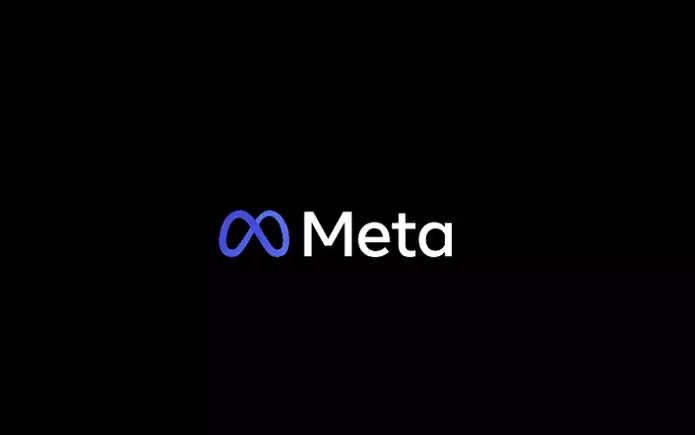Meta, the parent company of Facebook and Instagram, has publicly expressed a desire to distance itself from political content in an effort to curb the spread of misinformation and create a more enjoyable user experience. However, this PR-driven narrative seems increasingly incongruent with the reality of its platforms, which remain hotbeds for political discussions and misinformation. Recent reports highlight how the company continues to profit from questionable political advertisements, raising serious concerns about the authenticity of its commitment to a more civil digital discourse. It begs the question: is Meta genuinely dedicated to minimizing political content, or is this merely a facade meant to appease regulatory bodies and public opinion?
Despite Meta’s attempts to reduce the prevalence of political chatter, the sheer volume of user-generated content makes it nearly impossible to sidestep the realities of political engagement. Various ads circulating on Facebook paint troubling pictures of candidates, utilizing sensational imagery and provocative messaging that inevitably stoke division and discord among users. The previous election saw Russia-based entities leveraging Meta’s vast reach to disseminate disinformation, with an objective that ultimately remained shrouded in ambiguity. It raises alarm bells that, despite Meta’s self-imposed constraints, its platforms are once again mired in political controversies.
The backdrop of political manipulation on Meta platforms is not new. Following catastrophic events like the 2016 U.S. elections, Zuckerberg was summoned to testify before Congress. Lawmakers were rightly concerned about how platforms like Facebook could be exploited to manipulate public opinion. Meta’s initial measures to combat political misinformation were reactive rather than proactive; faced with criticism and pressure from media organizations, it saw an opportunity to pivot toward non-political content as a response.
As a result, the company has recently dismantled its dedicated news sections, closed deals with news publishers, and affirmed its desire to shift towards more benign forms of interaction. This was characterized as a strategic move to create a less confrontational environment in anticipation of the upcoming electoral cycles. Yet, even as it attempts to cleanse its platforms of divisive content, Meta remains entangled in the very issues it strives to escape.
Interestingly, Meta claims to be responding to user requests for less political engagement. CEO Mark Zuckerberg pointed to community feedback suggesting that users prefer to escape the constant barrage of political discourse. However, it is crucial to decipher whether the majority of users are genuinely averse to political discussions, or if they are simply frustrated with the current state of polarized dialogue. While the removal of political content might boost engagement in the short term, it risks alienating segments of the user base seeking meaningful discussions on critical societal issues.
Furthermore, the launch of Threads—Meta’s Twitter clone—appears to counteract its desire to minimize political content. The app’s design encourages real-time discussions, and navigating this delicate landscape while simultaneously downplaying political discourse is an arduous undertaking. Meta may find itself at a crossroads: continue trying to suppress political discussions and lose out on engagement opportunities, or embrace the messiness of democracy and allow for a more robust exchange of ideas.
The ambiguity surrounding what constitutes “political content” poses another challenge for Meta. Their current framework broadly defines such content as anything related to government, elections, or social topics. This vague categorization further complicates their efforts to regulate the information shared on their platforms, making it challenging to enforce guidelines consistently. Without clear definitions, Meta risks either over-regulating engaging dialogue or under-regulating misinformation that can erode public trust.
Moving forward, Meta may need to engage in meaningful conversations with various stakeholders, including users, experts, and policymakers, to establish a thoughtful and layered approach to political discourse on its platforms. The stakes are high, especially with the company’s vast global reach affecting millions. As the political landscape continues to evolve, Meta must adapt, finding a balance between fostering user engagement and ensuring information integrity.
In sum, Meta is caught in a complex web of its own making. The idea that it can successfully eradicate political content while weaning off its profit from divisive ads seems naive at best. As such, the company must be ready to confront these challenges transparently. The road ahead requires a nuanced understanding of user behavior and a clear strategy to deal with political discourse in a manner that fosters community engagement without compromising the integrity of information shared on its platforms. The world is watching, and the consequences of its decisions will have repercussions far beyond the digital realm.


Leave a Reply